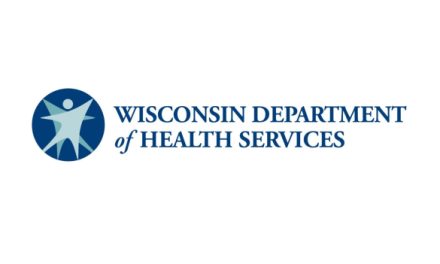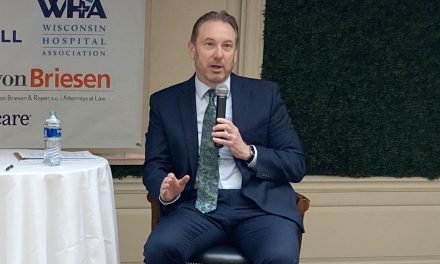
Physicians ‘between a rock and a hard place’ when it comes to navigating abortion law

The U.S. Supreme Court’s overturning of a constitutional right to abortion has left Wisconsin doctors mired in legal uncertainty, panelists said at a Wisconsin Health News event Tuesday.
Physicians are working under the assumption that an 1849 law making it a felony to provide an abortion except to save the life of a pregnant person is in effect, said Wisconsin Medical Society President Dr. Wendy Molaska.
“We’re between a rock and a hard place here,” she said. “We would be criminally charged with a felony, go to jail, lose our medical license if we provide an abortion that’s found to be enforceable under this 1849 ban. On the other hand, we’re treading this very fine line of where is the life of the mother … at risk enough that we can perform an abortion to save her life and then not end up with a malpractice suit because we waited too long, based on current guidelines and standards, to provide this abortion.”
Angela Rust, a shareholder in the health law section of von Briesen & Roper, said there are split decisions by courts on whether federal law governing emergency departments preempts state laws surrounding abortion. Enforcement agencies have taken the position that it does, meaning that providers could be removed from Medicare and Medicaid programs for not providing timely treatment in an emergency setting.
Doctors could also face action against their license for misconduct, unprofessional conduct or criminal activity for violating the state law.
“While you can fall below the standard of care and thus have unprofessional conduct, you can also have unprofessional conduct for criminal liability,” she said. “It’s a position I don’t envy.”
Diane Welsh, a partner at Pines Bach, said whether the 1849 law is enforceable is the “biggest question” at this point. The Legislature hasn’t taken action to either reaffirm the old ban, pass a new one or amend the law in any way, she said.
No court has ruled on it either, although a lawsuit filed by Attorney General Josh Kaul is pending. She noted that local prosecutors in Wisconsin are divided on whether they’ll prosecute under the law.
“That leaves a predicament for healthcare providers who don’t want to be hauled off to jail and await a criminal trial while lawyers and judges or legislators figure out what the law is or what it means,” she said. “So, from a practical standpoint, it’s had a chilling effect, and most providers in the state that I’m aware of are trying to operate as if there might be criminal enforcement.”
Dr. Abigail Cutler, an assistant professor at the University of Wisconsin School of Medicine and Public Health, said that doctors can still provide guidance and make referrals for patients seeking care out of state.
“As an OB-GYN who is taking care of patients who are seeking abortions for all sorts of reasons, it is part of my duty, that I see, to help patients navigate that path forward and to provide clinical guidance, to answer questions, to ensure that where they’re going, they will receive safe, evidence-based abortion care, and to also be sensitive to and attuned to the barriers that so many patients are facing when trying to seek that care,” she said. “It is no small feat to seek an abortion in Illinois or Minnesota for someone in Wisconsin where the cost of travel, the cost of child care, the cost of the procedure itself, those are significant costs, financial, emotional, otherwise.”
This article first appeared in the Wisconsin Health News daily email newsletter. Sign up for your free trial here.





